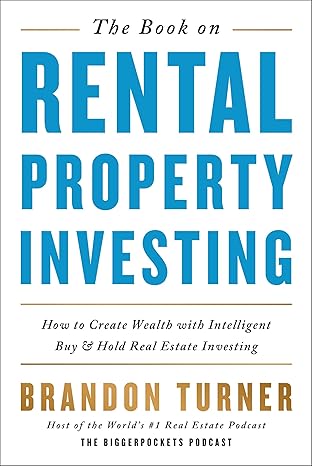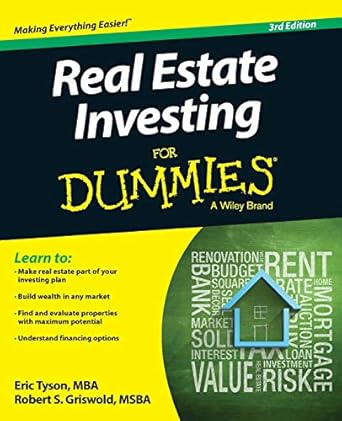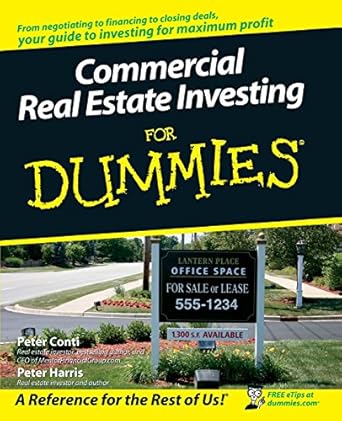
Check out our app!
Explore more features on mobile.
Real Estate Investing Basics: Your Education Guide
This comprehensive guide to real estate investing basics provides a step-by-step breakdown to help you build a solid foundation of knowledge. From understanding key terms to exploring proven strategies, you’ll learn everything you need to start your investment journey. We also have a dedicated Task Page to help you stay organized every step of the way!

Step 1: Understand Key Real Estate Terms
Cash Flow
Definition: The net amount of money left over each month after all expenses (mortgage, taxes, insurance, maintenance) are paid.
Importance: Positive cash flow indicates that the property is generating profit each month, which can help you reinvest or cover personal expenses.
Capital Appreciation
Definition: The increase in a property’s value over time.
Importance: Real estate often appreciates in the long run, which can significantly boost your net worth when you sell or refinance.
Equity
Definition: The difference between the property’s market value and the outstanding balance on any loans.
Importance: Building equity can open up opportunities for refinancing, obtaining a home equity loan, or funding additional investments.
ROI (Return on Investment)
Definition: A measure of how much profit you make relative to the amount of money you invest. Often expressed as a percentage.
Importance: A higher ROI means your investment is performing well, helping you compare different deals or asset classes.
Cap Rate (Capitalization Rate)
Definition: A formula used to estimate the return on an investment property, calculated as Net Operating Income (NOI) divided by the property’s purchase price (or current market value).
Importance: Cap rates help you quickly evaluate and compare the profitability of similar properties in a specific market.
Why This Matters: Understanding these core terms is essential for analyzing deals, negotiating purchases, and making informed decisions. When you know how to calculate and interpret key metrics like cash flow and ROI, you can better assess whether a property will meet your financial goals.
Step 2: Explore Different Investment Strategies
Buy-and-Hold Rental Properties
How It Works: Purchase a property, rent it out, and collect monthly rent. Over time, you benefit from consistent cash flow and potential appreciation.
Pros: Steady passive income, property value growth, and tax benefits like depreciation.
Cons: Requires ongoing property management, dealing with tenants and maintenance issues.
House Hacking
How It Works: Buy a multi-unit property (duplex, triplex, or fourplex), live in one unit, and rent out the others.
Pros: Reduced or even eliminated housing costs, ability to build equity quickly, lower down payment options for owner-occupied properties.
Cons: You live close to your tenants, and being both landlord and neighbor requires careful management.
Fix-and-Flip
How It Works: Purchase undervalued or distressed properties, renovate them, and sell for a profit.
Pros: Potential for high, quick returns if executed efficiently.
Cons: Higher risk due to renovation costs, market fluctuations, and holding costs.
REITs (Real Estate Investment Trusts)
How It Works: Invest in a company that owns or finances income-producing real estate. You buy shares similar to stocks.
Pros: Lower barrier to entry, liquidity (easy to buy/sell shares), diversification.
Cons: Less control over property decisions, subject to stock market volatility.
Short-Term Rentals
How It Works: Rent out a property (or a portion of it) on a nightly or weekly basis via platforms like Airbnb or VRBO.
Pros: Potentially higher rental rates than long-term leases, flexibility in personal use of the property.
Cons: High turnover means more maintenance, cleaning, and marketing; local regulations can restrict short-term rentals.
Why This Matters: Selecting the right strategy depends on your goals, risk tolerance, and available resources. Understanding the pros and cons of each approach allows you to align your investment plan with your lifestyle and financial objectives.
Step 3: Follow Reputable Sources
Books
The Book on Rental Property Investing by Brandon Turner
Key Takeaway: Step-by-step guidance on finding, financing, and managing rental properties.
Rich Dad Poor Dad by Robert Kiyosaki
Key Takeaway: Fundamental mindset shifts about money, assets, and liabilities.
Podcasts
BiggerPockets Real Estate Podcast
Benefit: In-depth interviews with investors of all levels, practical tips, and community support.
Online Courses or Local Seminars/Workshops
Benefit: Hands-on learning with networking opportunities; you can ask questions directly and often see real-world case studies.
Why This Matters: Staying educated keeps you informed about market trends, investment strategies, and best practices. Continuous learning helps you avoid common pitfalls and adapt to changing market conditions.
Action Items
1. Choose at Least One Real Estate Investing Book to Read
Start with a beginner-friendly option like The Book on Rental Property Investing by Brandon Turner or Rich Dad Poor Dad by Robert Kiyosaki.
2. Subscribe to Real Estate Blogs/Podcasts
Follow outlets such as BiggerPockets, local real estate associations, or niche investment blogs to stay updated on market trends and strategies.
3. Attend Local Real Estate Meetups or Seminars
Join local groups or workshops to build your network and gain firsthand insights from experienced investors in your area.
Summary
1. Master Key Terms: Familiarize yourself with concepts like cash flow, equity, ROI, and cap rate to build a solid foundation for deal analysis.
2. Evaluate Different Strategies: Understand the pros and cons of buy-and-hold, house hacking, fix-and-flip, REITs, and short-term rentals to see which aligns best with your goals.
3. Learn from Experts: Books, podcasts, and courses offer invaluable guidance and keep you up-to-date on market trends.
By prioritizing education early on, you’ll make more confident, informed decisions—laying the groundwork for a successful real estate investing journey.
More Investment Tools
Access your essential tools to plan, track, and manage your projects efficiently. The richest people on earth are meticulous planners and constant learners, you should be too!
Recommended Books for Real Estate Investing
These books are highly recommended for anyone looking to succeed in real estate investing. Get started with the best resources to guide your journey.
BiggerPockets Real Estate Podcast.
Here’s a great podcast for real estate investing: It’s popular and offers insights from industry experts.
More Investing Tips and Strategies Real Estate
Stay informed with the latest trends, insights, and updates in the real estate world.
Your Tools
Access your tools to manage tasks, update your profile, and track your progress.
Collaboration Feed
Engage with others, share ideas, and find inspiration in the Collaboration Feed.
















